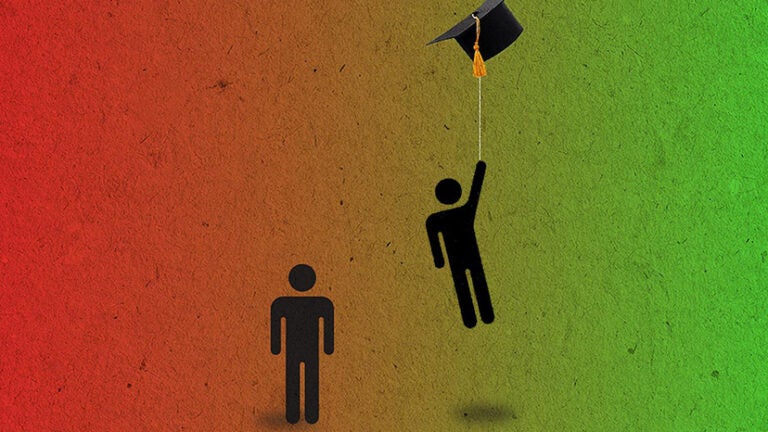
Life expectancy declines for Americans without a four-year college degree
American adults without a college degree have experienced greater reductions in life expectancy when compared to their counterparts with more education, USC and Princeton University researchers have found.
The study reveals that after nearly a century of declining mortality up to the late 1990s, the progress continued into the 21st century for more-educated Americans but stalled for the population as a whole and reversed for the two-thirds of Americans who do not have a college degree.
The study appeared March 8 in the Proceedings of the National Academy of Sciences.
Study authors Anne Case and Angus Deaton, who have previously documented the toll of deaths of despair on Americans, said their latest findings demonstrated the increasing influence of educational attainment on a person’s health and economic security in the United States.
“The United States has this increasingly sharp societal division between people who have a college degree and those who don’t,” said Deaton, Presidential Professor of Economics at the USC Dornsife College of Letters, Arts and Sciences, Distinguished Fellow at the USC Schaeffer Center for Health Policy & Economics and the Dwight D. Eisenhower Professor of International Affairs, Emeritus, at Princeton. “If you don’t have a four-year degree, not only have your wages been falling for 50 years but our study shows your adult life expectancy is also decreasing.”
Life expectancy gap widens regarding education, narrows for race
The researchers found that although the adult life expectancy gap widened between those with and without a college degree, it narrowed based on race. By 2018, the adult life expectancy of Black Americans with a bachelor’s degree — who in the past had a lower adult life expectancy than whites without a degree — was closer to whites with a college degree than to Black Americans without a degree. This is in stark contrast with the larger racial divides of the 1990s.
When looking at race, regardless of education, the researchers found some nuances. Hispanics at age 25 were closer to living another 50 years than whites. In turn, whites were closer to living another 50 years than Blacks. Overall, Blacks and Hispanics made greater gains in life expectancy than whites. However, between 2010 and 2013, progress on life expectancy stopped for all races.
Inequality in how long Americans live predates the pandemic
Case and Deaton said in addition to deaths of despair, contributing factors to reduced life expectancy include obesity, smoking and cardiovascular disease, along with a shrinking pool of high-quality jobs.
“Good jobs have become increasingly rare for workers without a college diploma, many of whom have lost their jobs to globalization and automation and for whom the cost of employer-provided health care has increasingly priced them out of the high-quality labor market,” Deaton said. “There has been a real loss of the pillars of working-class life, and it has contributed to this decline in adult life expectancy.”